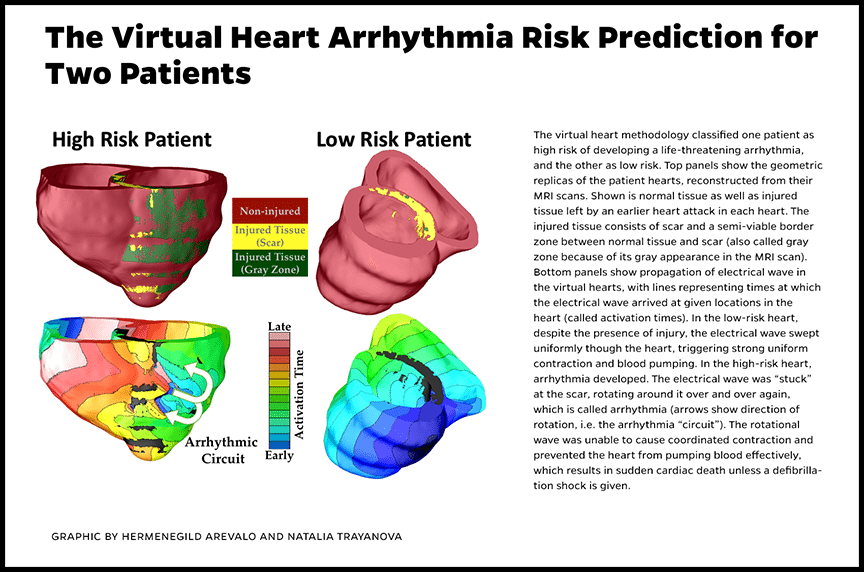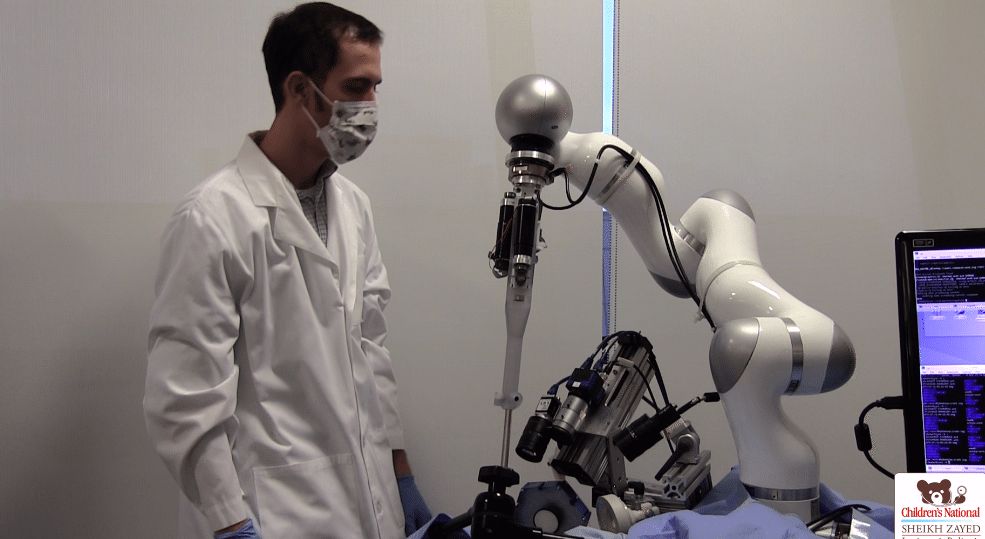Johns Hopkins researchers made headlines in scholarly journals this month.
Here’s a look at the work:
Personalized Virtual Heart

A 3D model of the heart could help doctors learn more about the ticker before they have to implant anything inside it.
Using MRIs, a team is using digital imaging to test for irregular heartbeat — known in medical parlance as arrhythmia. The Virtual-Heart Arrhythmia Risk Predictor (VARP) could help doctors better determine whether a procedure to insert a small defibrillator that puts the ticker back on beat is necessary.
Led by biomedical engineering professor Natalia Trayanova, the team detailed successful proof-of-concept tests in the journal Nature Communications this week, and is planning wider tests.
Robot’s STAR Surgery Turn

Using robots makes hands-free surgery possible, but getting the programming right is still a work in progress.
A JHU computer scientist was a member of a five-member team that made a recent advance in guiding a robotic surgeon through a soft tissue procedure. The four-year effort culminated with an article in Science Translational Medicine that details the process of suturing two tubular structures. While robot-assisted surgeries are already appearing in operating rooms, the team believes the fully hands-free approach can reduce potential human error.







